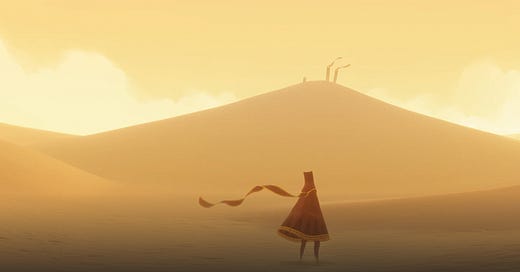30 years of playing PlayStation games early
Shuhei Yoshida just finished a long run at Sony, where one of his roles was to give developers feedback: To tell bad games from good, and the good from the could-be great. He explains how he did it.
When I met up with Shuhei Yoshida in Las Vegas a couple of months ago, I didn’t want to talk about his whole tenure at Sony PlayStation, the run that started in 1993 and had just wrapped up.
He’d been doing the rounds, sitting for delightful, informative career-spanning interviews.
I’d love to chat, I told him, but maybe we could focus on something specific: The art of playing a game early and giving helpful feedback.
For that topic, I couldn’t think of many people on the planet better qualified.
Yoshida had been a producer on games for the original PlayStation, rose the ranks of Sony to become head of PlayStation’s vaunted worldwide studios, had been there for Naughty Dog’s Crash Bandicoot and Naughty Dog’s The Last Of Us, for the original God of War and the series’ stunningly good soft-reboot, for one remarkable game after another.
Who else had seen so many games before they were done? Seen so many great games before they were great? Seen so many bad ones, too, perhaps? And had the power to do something about what he played?
Could we talk about that?
Sure, Yoshida said.
He noted that he joined PlayStation lead creator Ken Kutaragi’s team in 1993 and spent a few years doing account management. In 1996, he became a producer and, as his role grew, he remained focused on the need to check games out and give feedback. He kept at it in 2019, when his role shifted from running Sony’s game studios to counseling indies interested in PlayStation.
“So, for the last 28 years, that’s been my job,” he said.
In fact, it still is. He’s now CEO of his own consultancy, yosp inc., and is currently advising two indie publishers and two indie studios.
(The following interview was conducted in February at the DICE Summit in Last Vegas. It has been lightly edited for length and clarity. )
Game File: During your time at Sony, what could you see early in a game that would convince you, ‘Okay, this game has potential?’
Yoshida: In terms of finding the potential great games, we can look at the concept—a pitch doc, even—without the actual playable game.
Playable always helps, or some short video of actual gameplay really helps. But for the pitch doc, [it helps] if there's something really interesting and unique that the developer is trying to do, and if it looks like they have put a lot of thinking behind the core concept of what they are trying to prove—instead of saying, ‘Oh, this is a sci-fi version of a Souls -like.’
[It’s good] if they are trying to communicate that ‘The experience we are trying to create for players is this’ and the kind of emotion they want to create. [It helps] if they have some theory that, ‘If we do this, this should work this way…’
Game File: Is there a game from your time at PlayStation that you recall having a particularly strong pitch doc that let you know it was on the path to something good?
Keep reading with a 7-day free trial
Subscribe to Game File to keep reading this post and get 7 days of free access to the full post archives.





